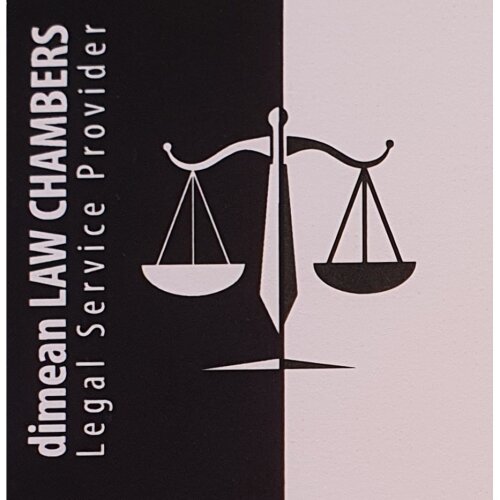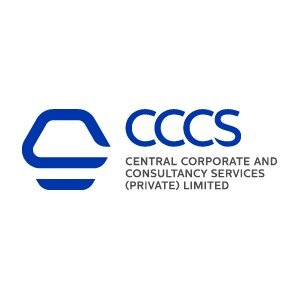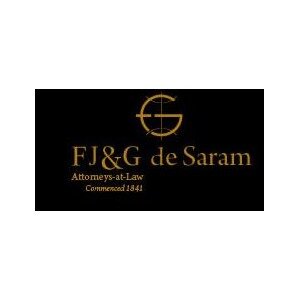Best Renewable & Alternative Energy Lawyers in Colombo
Share your needs with us, get contacted by law firms.
Free. Takes 2 min.
List of the best lawyers in Colombo, Sri Lanka
About Renewable & Alternative Energy Law in Colombo, Sri Lanka
Renewable and alternative energy is a growing sector in Colombo, Sri Lanka. As the country works towards reducing its reliance on fossil fuels, the focus on sustainable energy solutions such as solar, wind, biomass, and hydropower has increased. The government of Sri Lanka has set ambitious goals to increase the share of renewables in its national energy mix, with a vision to become carbon neutral in the coming decades. The legal landscape is continuously evolving to support investments, regulate projects, and ensure compliance with environmental standards within this dynamic field.
Why You May Need a Lawyer
There are many situations where individuals or businesses may require legal assistance regarding renewable and alternative energy matters in Colombo. Common scenarios include:
- Starting a renewable energy business or partnership
- Acquiring permits and approvals for installation of solar or wind systems
- Negotiating power purchase agreements with the Ceylon Electricity Board or other buyers
- Complying with environmental and zoning regulations
- Dealing with intellectual property for new energy technologies
- Handling disputes related to land use, contracts, or energy supply
- Understanding tax incentives and benefit schemes for renewable investments
- Participating in government tenders for large-scale energy projects
An experienced lawyer can guide you through compliance procedures, contract negotiations, dispute resolution, and help safeguard your interests at every stage.
Local Laws Overview
The legal framework for renewable and alternative energy in Colombo is shaped by a combination of national laws, regulations, and policies designed to promote clean energy while ensuring responsible development. Key statutes include the Sri Lanka Sustainable Energy Authority Act, Electricity Act, and the National Environmental Act. The Sri Lanka Sustainable Energy Authority (SLSEA) oversees the sector, issuing necessary licenses, setting standards, and implementing incentive schemes. Land use regulations and environmental impact assessments are also crucial for new projects. Developers must consider zoning laws, grid-connection requirements, and tariff structures set by the Public Utilities Commission of Sri Lanka. Adhering to these laws is essential for securing necessary approvals and maintaining legal compliance.
Frequently Asked Questions
What types of renewable energy projects are common in Colombo?
Solar power installations, rooftop solar panels, small-scale wind farms, biomass projects, and hydroelectric systems are common renewable energy projects in Colombo and its surrounding areas.
Do I need a license to start a renewable energy project?
Yes, most renewable energy projects require licenses and approvals from the Sri Lanka Sustainable Energy Authority and, depending on the project, other relevant authorities.
How are renewable energy tariffs determined?
Tariffs for renewable energy are set and regulated by the Public Utilities Commission of Sri Lanka, often through transparent and published frameworks or by tender-based processes.
What is net metering, and is it available in Colombo?
Net metering allows consumers who generate their own electricity (for example, with solar panels) to feed excess power back into the grid and receive credits. This system is available in Colombo under specific rules set by the Ceylon Electricity Board.
Are there any tax incentives for investing in renewable energy?
Sri Lanka offers various incentives, including tax holidays and duty exemptions, to encourage investment in the renewable energy sector. The specifics can change, so consulting a legal or tax professional is recommended.
Is an environmental impact assessment required for all projects?
Not all projects require a full environmental impact assessment, but many larger-scale or potentially impactful projects do. The requirement depends on the location, size, and type of technology being deployed.
How can disputes in renewable energy contracts be resolved?
Disputes can often be resolved through negotiation, mediation, or arbitration, as outlined in the contract. If those mechanisms fail, parties may resort to litigation in Sri Lankan courts.
Can foreigners invest in renewable energy projects in Colombo?
Yes, foreign investment is permitted and encouraged in the renewable energy sector, but investors must adhere to relevant laws concerning foreign ownership and obtain necessary approvals.
What organizations regulate renewable energy in Sri Lanka?
The Sri Lanka Sustainable Energy Authority regulates the sector, while other bodies such as the Public Utilities Commission and Ceylon Electricity Board play key roles in implementation and oversight.
Do I need permission to install a solar panel on my property?
Yes, you usually need consent from the local council and relevant energy authorities, particularly if you intend to connect to the national grid.
Additional Resources
For further guidance and up-to-date information, consider reaching out to these organizations:
- Sri Lanka Sustainable Energy Authority (SLSEA)
- Ceylon Electricity Board (CEB)
- Public Utilities Commission of Sri Lanka (PUCSL)
- Ministry of Power and Energy
- Central Environmental Authority (CEA)
- Chamber of Commerce - Renewable Energy Developers Association
These organizations provide information on regulations, permits, incentives, and technical standards relevant to renewable and alternative energy projects.
Next Steps
If you are considering a renewable or alternative energy project in Colombo or have legal questions about ongoing operations, it is important to consult a lawyer specializing in energy law. Start by gathering relevant documents such as business plans, property titles, contracts, and correspondence with authorities. Schedule a consultation to outline your objectives, inquire about regulations, and assess potential legal risks. A knowledgeable lawyer can guide you through the licensing process, help you secure incentives, draft effective contracts, and represent you in negotiations or disputes. Taking early legal advice will help ensure that your project is compliant, successful, and secure from legal challenges.
Lawzana helps you find the best lawyers and law firms in Colombo through a curated and pre-screened list of qualified legal professionals. Our platform offers rankings and detailed profiles of attorneys and law firms, allowing you to compare based on practice areas, including Renewable & Alternative Energy, experience, and client feedback.
Each profile includes a description of the firm's areas of practice, client reviews, team members and partners, year of establishment, spoken languages, office locations, contact information, social media presence, and any published articles or resources. Most firms on our platform speak English and are experienced in both local and international legal matters.
Get a quote from top-rated law firms in Colombo, Sri Lanka — quickly, securely, and without unnecessary hassle.
Disclaimer:
The information provided on this page is for general informational purposes only and does not constitute legal advice. While we strive to ensure the accuracy and relevance of the content, legal information may change over time, and interpretations of the law can vary. You should always consult with a qualified legal professional for advice specific to your situation.
We disclaim all liability for actions taken or not taken based on the content of this page. If you believe any information is incorrect or outdated, please contact us, and we will review and update it where appropriate.

















